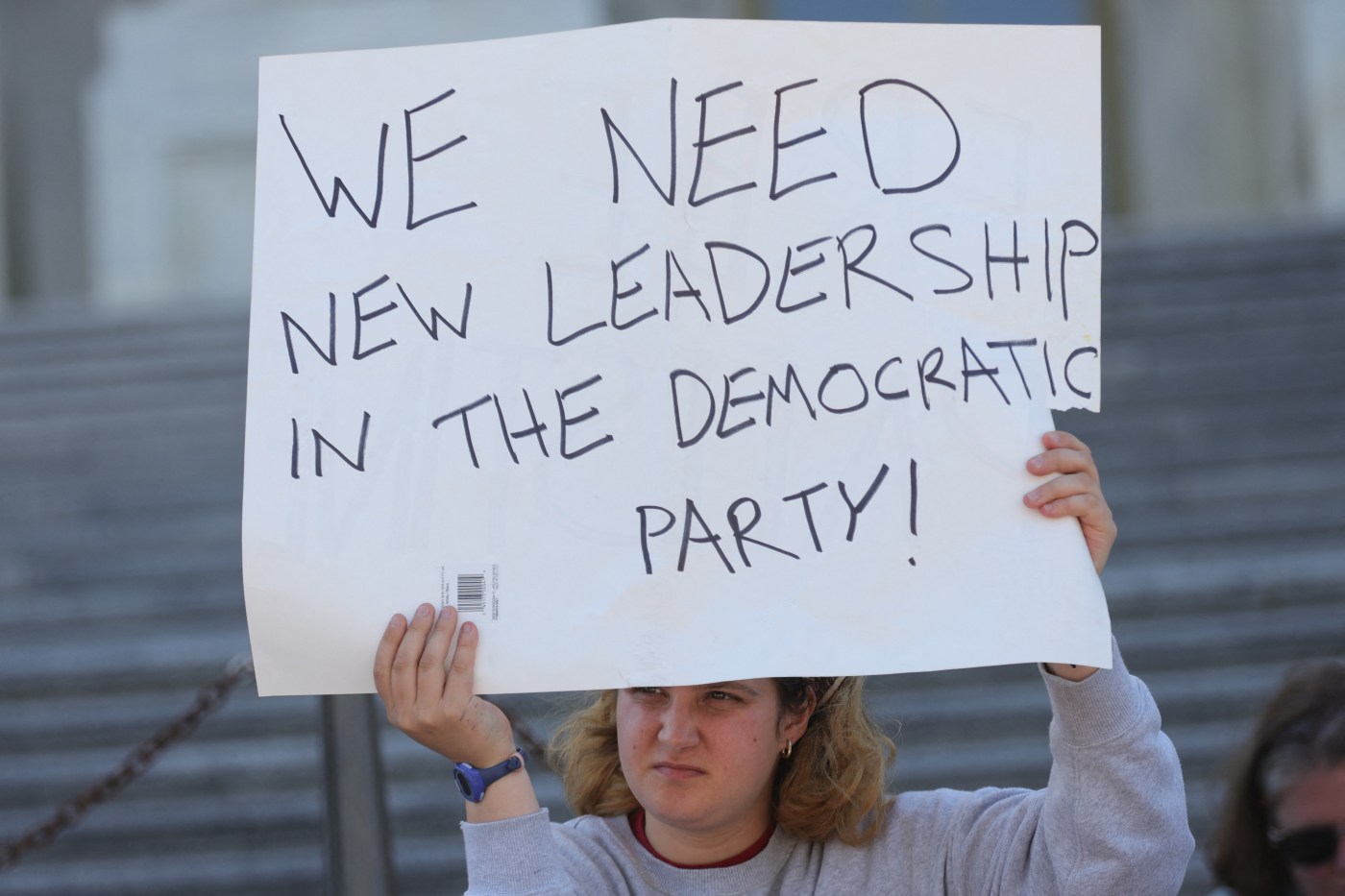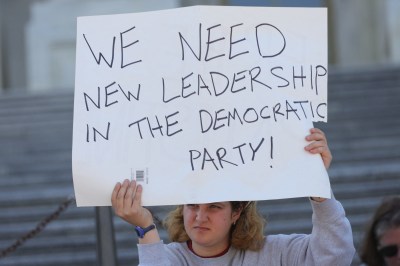Repairing the Democratic Party’s frayed relationship with working class voters is the focus of a postelection initiative launched by an established Democratic super PAC and overseen by a trio of Louisiana Democrats, including James Carville and former New Orleans Mayor Mitch Landrieu.
The Working Class Project, as the effort from American Bridge 21st Century is aptly named, is conducting polls and focus groups of blue collar voters to provide Democrats with the data and qualitative, anecdotal information they hope will help them understand why some voters defected to President Donald Trump and the Republicans—and what it takes to win them back. Crucially, the project is making all findings public and refusing to sugar coat the extent of the Democrats’ problems with the working class.
Working Class Project strategists readily acknowledge the rift is driven by cultural differences, an understanding that might set their initiative apart from other efforts to rebuild the party that have emerged since Trump defeated then-Vice President Kamala Harris last November.
“I thought it was important to do a deep autopsy and make it public and we’ve done something that’s forward looking,” Bradley Beychok, a political operative and the third Louisiana Democrat overseeing the project, told The Dispatch this week in an interview. “It gives us a really clear snapshot of what people think—how they view Democrats—nationally and locally. It’s been pretty consistent. I don’t think this is rocket science. They think that we’re weak, woke and sort of, eighth grade hall-monitors.” (Beychok is a key strategist at American Bridge, a Democrat-aligned super PAC specializing in opposition research, political messaging, and voter persuasion.)
Trump topped Harris by just 1.5 percentage points nationwide, failing to crack 50 percent of the vote. But underneath the hood, the demographic shifts away from the Democrats, and to the GOP, were startling. Landrieu, who was also an infrastructure adviser to former President Joe Biden, detailed the party’s poor performance and resulting predicament in an April post on Substack, the platform the initiative uses to publicize most of its work.
“Post-election polling by Navigator Research on the Democratic brand found that 58 percent of Americans believe the party ‘prioritizes other groups of people that don’t include me.’” Our Democratic brand was also seen as too elite and coastal. This election ran a freight train through the idea that demographics alone will determine our political destiny,” Landrieu wrote. “Population shifts could exacerbate our electoral disadvantages.”
Among the troubling indicators Landrieu cited: 46 percent of Hispanics backed Trump, as did 16 percent of black voters. According to CNN exit polls of the 2020 contest, that’s up from 32 percent and 12 percent, respectively, in 2020. Additionally, 15 percent of voters earning under $50,000 annually swung toward the Republicans compared to the preceding presidential election. That stings because these low income voters have historically been a core Democratic constituency.
The president lured them in part with populist proposals like eliminating income taxes on tips and overtime pay, but also by validating their views on cultural issues, such as opposing transgender girls’ participation in female sports.
With an eye toward the 2030 census and improvements to make Democrats more competitive, the Working Class Project is “listening” to voters in 21 states (15 so far, six more to go). In other words, this effort is not limited to swing states or the “blue wall” battlegrounds of Michigan, Pennsylvania, and Wisconsin. The full list includes those, plus: Arizona, Colorado, Florida Georgia, Iowa, Kansas, Maine, Minnesota, Nebraska, Nevada, New Hampshire, New Jersey, New Mexico, North Carolina, Ohio, South Carolina, Texas, and Virginia.
Beyond the polling and focus groups with male and female working class voters across multiple ethnicities, age ranges, and languages, the project is holding roundtable discussions with local elected officials as well as labor and faith leaders. The initiative also is tracking media consumption habits and maintaining a panel of blue collar voters to monitor reactions to Trump and his policies over time. Some congressional Democrats have asked for and received briefings, and there are plans to deliver presentations to the full House and Senate Democratic caucuses this summer.
Those sessions are likely to highlight several vulnerabilities Democrats have with disaffected working class voters that—unlike 2016, when Trump first won the presidency—extend beyond whites and now include blacks and Hispanics. As a Working Class Project focus group of blue collar Hispanics in the border community of McAllen, Texas, revealed in May, offering a bigger dose of populist economics is insufficient to win them back. Cracking down on illegal immigration is essential.
“Open borders, they have to adjust. That’s why they lost. You can’t have open borders,” an unnamed Hispanic man said during the McAllen focus group. Added an unnamed Hispanic woman: “On immigration, I don’t think [Democrats] really care, because they were letting everyone in. You know how they say, ‘yes, we’re for the people?’ They are ‘for the people,’ they’re just not for U.S. people.”
But as other Working Class Project focus groups of blue collar black voters made clear, the party also has substantial work to do on its economic agenda, whether policy, messaging, or both.
“Black men we heard from seem to believe that Democrats pander to their racial identities as Black men but fail to speak to their economic identities, which alienates them from the party,” Ian Sams, a spokesman for the initiative, wrote in a memorandum summarizing the information gathered from focus groups of black voters across multiple states. “As one man in North Carolina succinctly put it: ‘At my age, I don’t care if I’m not included. I wanna make my money. I wanna be able to support my family.’”
Anecdotes like these reinforce the political importance of proposing economic policies that excite working class voters. To significantly flip the disaffected Republicans who voted for Trump, the Democratic Party needs to become more tolerant to voters who, for instance, passionately oppose abortion rights or enthusiastically support gun rights—moves that could frustrate its activist liberal base.
“If we shame people for saying, ‘I have this viewpoint around this [position] that doesn’t align with what the far-left of my party does’ and we say ‘You’re not welcome here,’ then we’re going to continue to fail,” Beychok said. “I don’t think that we can just whistle past the graveyard and think—this eventually will go away. It won’t go away because Republicans know it electorally hurts us.”
He added: “If you don’t have a simple, bold answer to say, ‘I understand people are concerned about it, here’s how I understand it and here’s what I’m going to do about it,’ then we’re going to continue to lose.”







Please note that we at The Dispatch hold ourselves, our work, and our commenters to a higher standard than other places on the internet. We welcome comments that foster genuine debate or discussion—including comments critical of us or our work—but responses that include ad hominem attacks on fellow Dispatch members or are intended to stoke fear and anger may be moderated.
With your membership, you only have the ability to comment on The Morning Dispatch articles. Consider upgrading to join the conversation everywhere.